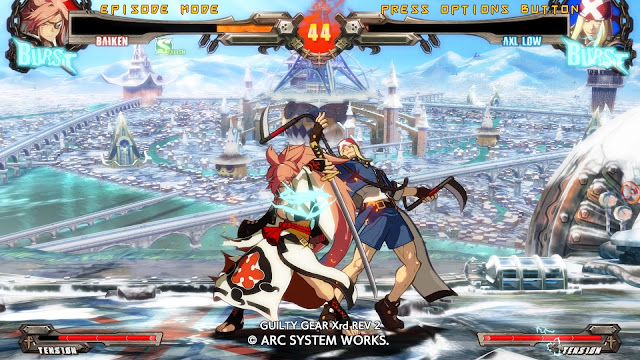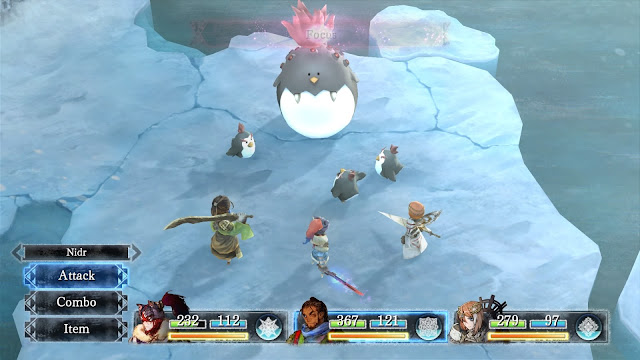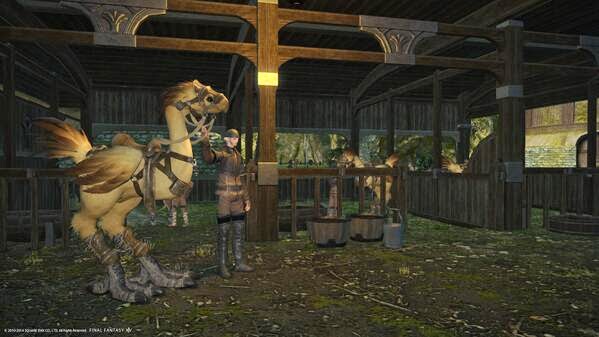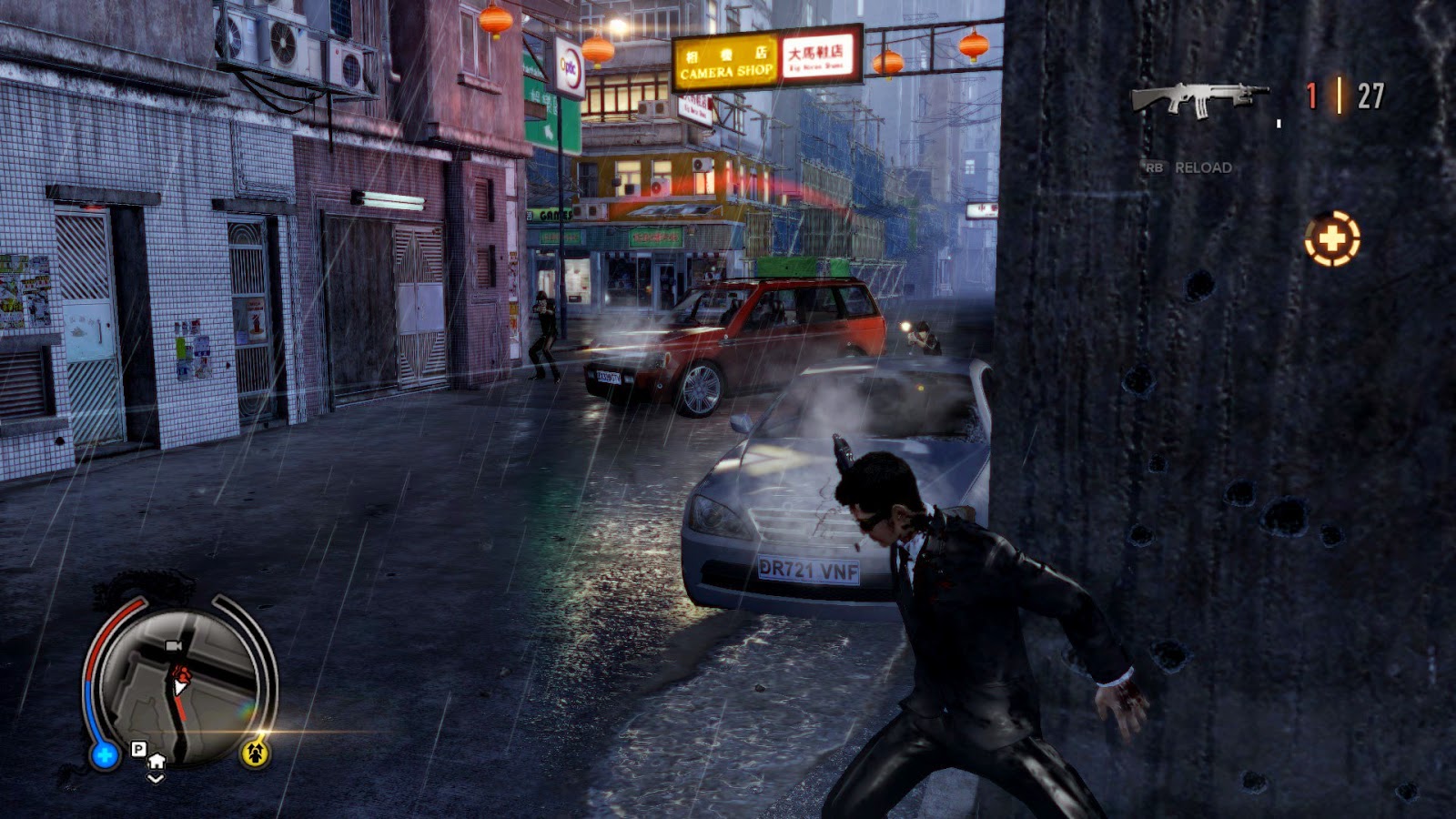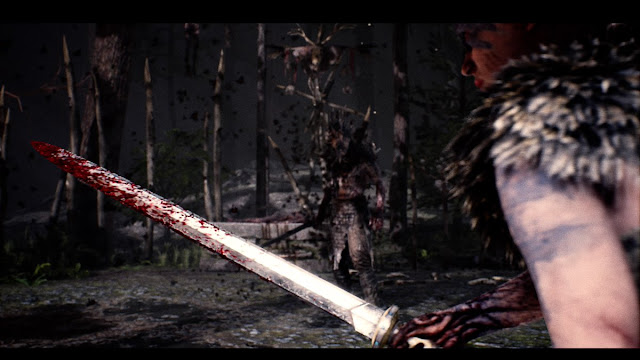List by Matt C.
It’s hard to believe, but we’re at the end of a decade this month, and it should go without saying that a lot has happened in video games over that last ten years. Just think: at the start of the decade people were playing Nintendo Wii, PlayStation 3, Xbox 360, PSP and Nintendo DS. There’s been two new generations of consoles in that time, and one new Sony and Microsoft device. In addition, in that time VR made a comeback, and streaming games has just started to get steam. DDNet started as a humble little blog right at the end of 2010, and it’s been fascinating to watch the site evolve and change as the industry.
To celebrate this huge transition, from one decade to the next, we’ve decided to get the team to share their most noteworthy games of the decade – the games that they found most memorable, or had the biggest impact on them. We’ll publish these at a rate of one per day, and today it’s DDNet’s resident Kiwi – Matt C!
For a while, it was looking like Arc System Works had all but given up on Guilty Gear in favour of its (much more lucrative) little sibling, Blazblue. Then Guilty Gear Xrd -SIGN- came along to set things right, finding a balance between the depth and complexity that Guilty Gear is known for and going some way to reducing the barrier to entry, while also pushing the bounds of what “2.5D” cel-shaded animation can look. -SIGN- was followed up with a couple of new iterations that added new characters and tweaked game systems; as the latest of those, REV2 is the Guilty Gear at its best.
I Am Setsuna is the rare game that commits everything to a central theme and delivers on that to perfection, even if it has to compromise mass appeal to do so. With its snow-covered world, piano score, solemn story of a young woman’s pilgrimage to sacrifice herself to save the world, and classic JRPG design, I Am Setsuna lives and breathes the concept of “setsunasa”—a word meaning something akin to nostalgic sorrow, but with a lot of nuance that gets lost in translation. It got a lot of criticism for being “too repetitive” as a result, but that refusal to deviate from its message is one of I Am Setsuna’s greatest strengths.
Ori and the Blind Forest is Metroidvania perfection, laced through one of the most genuinely heartfelt and thought-provoking stories I’ve seen. It’s a tale about a young creature’s journey to save the forest they call home from destruction—so far, so familiar—but one that goes down a much less traversed, and far more meaningful, approach to “good” and “evil”. The stunning animation, meticulous level design, and clever choice of ability upgrades certainly don’t hurt, either.
The Walking Dead: Season One
It’s hard to overstate the impact that The Walking Dead: Season One (then simply called Tell The Walking Dead) had on the game industry as a whole. It de-emphasised the puzzles that point-and-click adventure games were historically known for in favour of making the player’s narrative choices—and the impact those had on his the story unfolded—the core way of engaging with the game. Coupled with some sublime writing, an empathetic cast, and some truly gut-wrenching moral dilemmas, you’ve got a powerful game indeed—one that inspired a whole trend of similarly narrative-centric adventure games.
Final Fantasy XIV: A Realm Reborn
The story of Final Fantasy XIV: A Realm Reborn’s development is well known by now: the original Final Fantasy XIV had a disastrous launch, and rather than try to incrementally improve things (or just let the game bleed out), Square Enix decided to bring in a new development team to rebuild the game almost entirely. It’s hard to overstate just how big of a risk this was—there are so many ways that A Realm Reborn could have crashed and burned. Instead, Naoki Yoshida and his team turned one of the most poorly-received MMOs into a huge success, and it’s only gone from strength to strength in the years since its relaunch.
Sleeping Dogs is an underrated masterpiece. After a decade’s worth of people trying to capture Rockstar’s Grand Theft Auto success, Sleeping Dogs came along to show the world exactly what an open-world crime drama should look like. It built on the formula in a lot of meaningful ways (vehicle chases are fun now!), but its biggest achievement was in the story it told. Drawing heavy inspiration from Infernal Affairs, Sleeping Dogs weaves a tale of Hong Kong’s criminal underworld that doesn’t pull its punches but also has a level of nuance and heart that you rarely see from “GTA clones”.
Lots of games try to invoke psychology in some way or another, but few commit to it like Hellblade. It tells the stories of a young viking woman’s pilgrimage through her own psychosis as she fights her way to hell to free the soul of her dead lover. It’s a journey through mental illness in both a literal and a figurative way, brought to life through hellish style and intense combat that only Ninja Theory can deliver.
Danganronpa: Trigger Happy Havoc
There’s nothing out there quite like Danganronpa: Trigger Happy Havoc. It sees a group of high schoolers—each a prodigy in some field or another—locked in a school together by a manic black-and-white teddy bear, with the only way out being to kill a fellow student and not get caught. It’s disturbing and hilarious in equal measure thanks to its quirky cast and eccentric sense of style, with plenty of subversive thoughts on game theory and violence underpinning the whole thing. Despite that whole other genre that’s blown up, Danganronpa is really the only game to date that truly channels Battle Royale in any meaningful way.
The Missing: J. J. Macfield and the Island of Memories
The Missing is a grotesque but fiendishly clever puzzle platformer, built on the idea that the only way to progress is for the main character to literally dismember herself on the exact same deadly traps that would usually kill a typical platformer hero (instead of instant death, a sawblade becomes a way of cutting off your arm so that you have something to throw onto that distant pressure plate…) While clever enough in its own right, it’s the way this grim concept feeds into a genuinely poignant and thoughtful stories about queer identity that makes The Missing really stand out.
NieR: Automata isn’t just the best game of the decade—it’s the best game ever made. It has all the philosophical depth, complex characters, offbeat sense of humour, and subversive, genre-bending game design you’d expect from a game directed by Yoko Taro. But where his past games have been arguably held back somewhat by clunky gameplay, NieR: Automata has the character action masterminds at PlatinumGames involved, ensuring that button pressing is just as captivating as the story that surrounds it.
– Matt C.
Contributor


